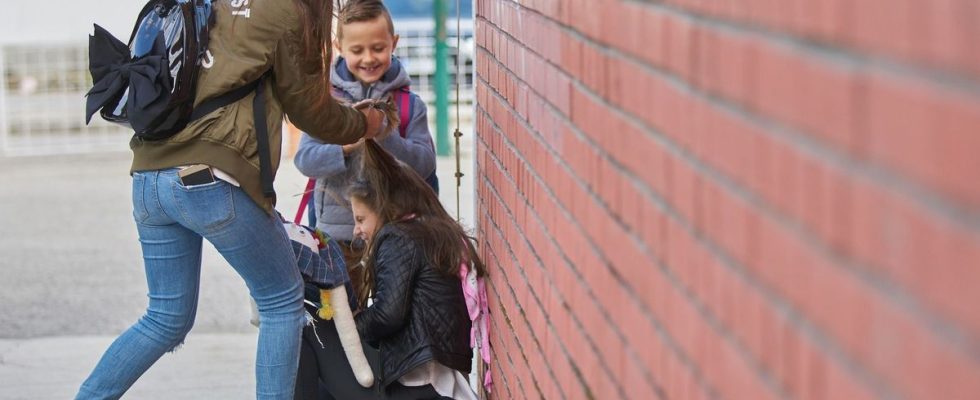Published on
Updated
Reading 3 min.
in collaboration with
Amélie Boukhobza (Clinical psychologist)
The beating of young Samara, a 13-year-old schoolgirl, reignites the debate on the violence caused by social networks. Even if the circumstances of her attack have not been completely clarified, a fake Snapchat account would be at the origin of the quarrel between the teenager and her attackers, according to the young girl’s mother. Do social networks encourage such drama? We asked psychologist Amélie Boukhobza the question.
The lynching of young Samara took place on Tuesday, not far from her college in Montpellier. The 13-year-old girl was severely beaten by several other students and was hospitalized and then briefly put in a coma, before being awakened yesterday. According to her mother’s testimony to several TV channels, a fake Snapchat account was the cause of the beating of the young girl, who was already regularly harassed at school.
Social networks influence behavior in real life
This sad news raises questions about the place and role of social networks among young people, particularly when they lead to such an outbreak of violence. How can we explain that a simple photo, shared on social networks, could lead to such a brutal attack on a teenage girl?
According to Amélie Boukhobza, the virtual world of social networks has a profound impact on the behavior of young people. “It is clear that the move from a seemingly innocuous photo to an act of such collective violence highlights the profound impact that digital platforms can have on offline behavior.” believes the psychologist.
“And it is difficult to act on this as reputation and self-image in the digital space have become so important. This was already the case in real life, particularly during this adolescent period, when young people are in the process of constructing their identity, but now this is also the case in the virtual space of social networks”.
Social networks allow teenagers to act discreetly
Another perverse effect of social networks: they act as a real catalyst for violence. “On social networks, everything is exacerbated. The ease with which users can highlight a situation, organize it and incite violence, often hidden from the view of adults, creates a very dangerous group effect” adds our expert.
Without forgetting the fact that this phenomenon “will be all the more exaggerated by a certain disinhibition on ephemeral platforms like Snapchat, where actions apparently seem without consequences”.
In addition, youth violence is boosted by the possibility of creating false profiles, in order to escape or attempt to escape the consequences of their actions or to allow themselves certain things that they would not dare to do in life. real.
The group effect and social pressure, two other elements that come into account
In the case of young Samara, three college students today admit to having carried out the blows. The group effect and social pressure encourage this type of behavior, assures Amélie Boukhobza. “They are facilitators and encourage violent behavior, under the guise of ‘everyone doing it’. Without forgetting that the virtual space and the screen undoubtedly create an emotional distance with the victim and empathy is diminished..
Adolescence is also a favorable period as young people are in full search of belonging. “They may feel pressured to act aggressively to be accepted or valued within their social group.”.
So what is the solution to this violence generated by social networks? Should we conclude that all adolescents are capable of harming others? “Some are aware of the harm they are doing, but most of them are not.” judges our expert. “We must not neglect certain types of psychological profiles even if for many, they are followers”.
What would be the solution, then, to make adolescents understand the serious consequences of such behavior? “Perhaps more media and information education, and open discussions about online ethics, could give them more guidance to navigate more healthily.” advances Amélie Boukhobza.
“Without forgetting the fact that the positioning of teachers and educational establishments should change. They should receive the same education on social networks because many do not know the challenges of these platforms” she concludes.
